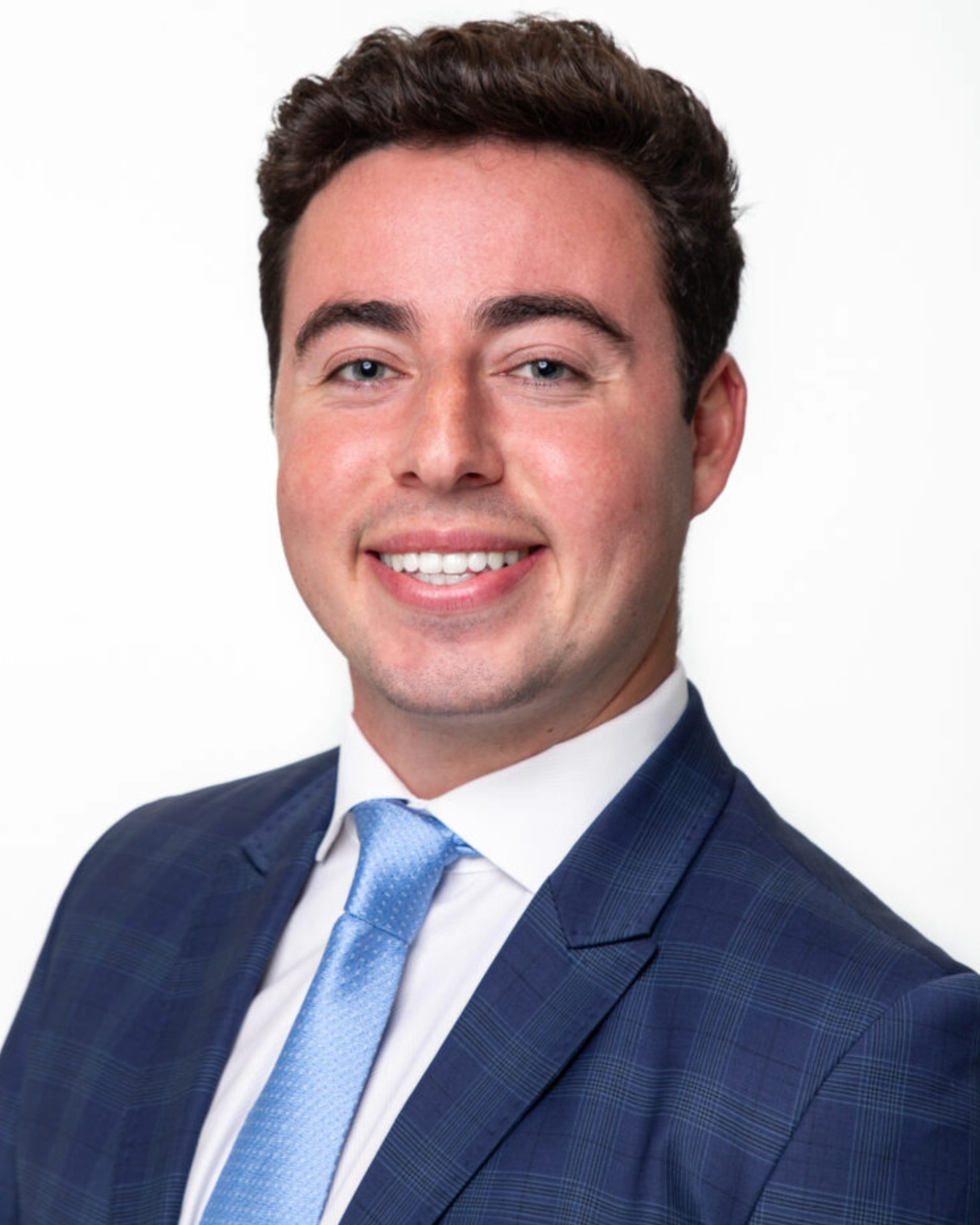Commercial Real Estate Tax Assassin?? Why this former soap opera actress considers herself a deadly weapon against income taxes

Commercial Real Estate Tax Assassin?? Why this former soap opera actress considers herself a deadly weapon against income taxes.
Q: Let’s start with tax assassin – that’s a pretty bold claim.
A: It is! Partly I like saying it because it’s fun to imagine yourself a superhero. But I also like saying it because it accurately depicts how I help commercial property owners. We typically provide clients with income tax reduction equal to 3-8% of the value of their building, for leaseholders, we save as much as 20%! Assassins are also sort of mysterious – and I think that’s a great analogy for cost segregation. It is so underutilized that less than 10% of eligible property owners are using this strategy.
Q: If cost segregation has such a high value, why do so few property owners use it?
A: The main reason is lack of education. In order to successfully, effectively and correctly complete cost seg studies, you must understand both engineering as well as ever-changing tax laws. Most CPAs do not understand engineering, and few CPA firms keep engineers on staff. Without both pieces in place, problems occur. First, it is impossible for CPAs to perform studies that achieve the highest return for their clients, in a legally compliant manner. Without engineering understanding, CPAs use estimating – a method not approved by the IRS which can put you in hot water upon IRS review.
Q: Does that mean that studies are completed that will result in IRS penalties under audit?
A: That’s exactly it. All too often we see “studies” completed in a manner that does not meet the IRS requirements, with many errors in savings calculations as well. You get what you pay for though. Over the past few years cost segregation has become a larger niche market and we are seeing companies provide studies for such bargain basement prices it is clear they are not doing thorough, legally compliant work. Unfortunately, their clients don’t understand enough to know they’ve been disadvantaged. It would be like choosing a construction company to build you a home and being excited at the lowest bid, without realizing they used straw to build your house. It didn’t work out well for the three little pigs, and it doesn’t work well for cost seg clients either.
We see ourselves as a partner to CPA firms. All we do is cost segregation work, so we don’t compete with a business’ accountant. It’s a similar relationship to that of a primary care physician and a specialist – the primary care doc is always the main voice, guiding a patient, the specialist comes in and does a job to augment what the primary doc is doing. Often, after we perform a study that is submitted to an accountant we’ve not worked with before, they request for us to review other studies completed in the past. In 3 out of 4 studies we review that were not performed by cost seg specialists using engineering support, we find that over 50% of the value gets missed, and an additional 25% is taken inappropriately. In other words – the IRS would be very unhappy with that 25%!
Q: You’re saying that on average, your clients receive a 25% better return, after you correct for errors that could lead to fines and penalties?
A: Well, I’d rather they work with us from the beginning to ensure they’re never at risk of penalties, but yes, clients who work with us typically achieve very high savings, with greatly reduced risk. To date, we have never had a single item disallowed when reviewed by the IRS. We respect the IRS regulations and make sure to find all the value available, but are conservative when applying the regulations.

Q: You mentioned there were other reasons business owners don’t use cost segregation – can you explain more?
A: Yes. Here are my top 3 reasons:
- Because CPAs, in general, do not have complete understanding of the power of cost segregation, they often do not recommend it to their clients.
- Because clients have a high degree of trust in their accountants, they assume their CPA would be doing cost seg if it were beneficial to them.
- Because there is a misunderstanding about who can benefit from cost segregation.
Frequently, we find clients believe that if they are already using a tax mitigation strategy like a 1031 exchange, or if the property is owned in a REIT, that cost segregation will not benefit them. These are both wrong – cost seg works well with both REITS and 1031 exchanges, as well as with other tax incentives.
Q: Who can benefit from cost segregation?
A: Anyone who owns a commercial property that they have built, purchased, or renovated in the last 10 years is a good candidate for cost segregation. The value of the building should exceed $450,000.
Anyone who has paid for leasehold improvements in the last 10 years - whether it’s the landlord or tenant. The value of the improvements should exceed $200,000.
Property types that benefit are limitless as long as the use is commercial. Multi-family buildings, restaurants and breweries, medical and dental facilities, golf courses, IT facilities, climate-controlled storage, assisted living – there is virtually no type of commercial property that can not benefit.
Q: Is there a best time to perform a cost segregation study?
A: Yes, the first year of ownership is the best, but it can still be a useful strategy into the 10th year and beyond. In terms of time of year, it’s common for owners to wait until income tax payments are coming due before reaching out to move forward with a study. I highly recommend owners reach out now. Our firm, like many, gets booked up during tax season – January through April. It’s better to book ahead so that you know your project will fit into our calendar.
Earlier, you mentioned a trend of firms doing legally noncompliant work – how can potential clients spot such firms and avoid them?
That’s a great question. We actually put together a guide for potential clients so that they can ask any firms they are considering the same questions and compare the answers. You can reach out to us and we’re happy to provide that guide. Short of that, here are the top 7 things to look for:
- Will the firm you choose come onsite and spend approximately 3-6 hours touring and documenting the property?
- Will both an accountant and an engineer tour the property?
- Is the firm using current interest rates or are they exaggerating potential savings by using a high yield, such as 8+ %?
- Does the firm create their own working drawings if no existing plans are available?
- Does the firm charge a fee even if they find nothing for you?
- What degree of detail is provided in the firm’s studies? Do they count even small but significant items like wall mounted doorstops and electrical outlets?
- Does the firm complete schedules for both federal and state returns, adjusting for differences between state and federal tax law?
Q: Did you say door stops? Is there really significant value in doorstops?
A: I never dreamed when I was working on soap operas, that I would one day enjoy counting door stops, but I love it! The value of cost segregation is in the details. A typical mounted doorstop costs approximately $30 to purchase and install, and that will lead to savings typically in a range of $8-10. Think about how many door stops there are in a typical building, and how much value that creates! In a recent medical building, the doorstops alone created value for our client in the thousands of dollars!
Q: I have to ask – how did you go from soap operas to tax accounting?
A: Doesn’t everyone take that path? The truth is that I found soap opera acting to be very boring. I was the least important actor on set - bottom rung. I was working 12-hour days, most of that time spent sitting in a windowless room waiting for my call times. And this was a time before smart phones, and ever-available internet access. I read a lot. The result of all my reading was that I left the soap opera and started my own business. I grew the business to a national presence very quickly. I was shipping my products across the country, and was a requested expert in my field on shows like World News Tonight, and The Today Show. I realized over time that my favorite part of the job was not my business, but the business problem solving. I moved to management consulting with a McKinsey spin-off, now a part of PwC. I loved helping other businesses create the success that I had stumbled into for myself. I am totally and completely an operations consultant. I love lean, smooth processes, made to empower happy employees. When I was then introduced to cost segregation a few years later, it was love at first sight! Cost segregation creates the cash savings in just a few weeks that it would take me 18 months or more to create as a consultant! What’s more, the fees are a fraction of the cost of management consulting. Once I understood cost segregation principles, there was no going back – except to school! As a working professional with all this experience behind me, I went back to school for accounting. I knew it was what I wanted to do with my career.
Q: How do you think your unusual experience impacts the work that you do?
A: From acting, I became a good teacher and communicator. Actors are more than anything, great listeners. From my first business, I developed empathy. I know what it is like to be a CEO. I know what it means to work for 36 hours straight, once a week, every week, because there was a time in my business growth when I did that. From consulting I learned methodology to apply to my instincts.
Q: When you think about the Capital District specifically, what thoughts do you have about our market?
A: Unexplored opportunity is what comes to mind. My husband is from Johnstown, and we moved to the Capital District 6 years ago to be near his family. Typically, when we grow our business to a new market, property owners are excited to meet with me. They are looking for any way possible to save money. If you have an idea, they are interested in hearing it. Here, the feeling is more that if they don’t already know of the idea, it can’t be any good. It makes me so sad! There is so much money to be saved here in the Capital District and I would love to help owners achieve that. It only takes 10 minutes for me to get a feel for whether savings exist, and it’s always surprising to me how reluctant owners are to invest that 10 minutes. We’ve been very fortunate over the last few years to be developing good relationships with some of the biggest real estate owners in the area. My hope is that as others learn of the projects we’ve been a part of, they will grow more curious and less suspicious. We don’t charge a fee unless we deliver what we say we will, so owners never have anything to lose by giving us a shot.
Q: You mention other markets – what areas do you serve?
A: We operate all over the country. 80% of our business exists along the East Coast, and west to Texas.
Q: You mention your husband – what does he think of your entrepreneurial endeavors?
A: Well, you’d have to ask him, but I know he doesn’t disapprove because we are business partners in another business. Tom is the smartest, most creative, hardest working person I know, and I just hope to keep up with him! Tom is the brains behind The Swell Party, a luxury catering brand, he works all over the world creating theatrical food experiences for high end weddings, celebrities, fashion, corporations, and non-profit fund-raisers. Tom and I are currently growing The Swell Party brand beyond the catering experience, so you can expect to hear about that sometime soon!
Q: My goodness – when do you sleep?
A: As they say, make hay when the sun is shining. I am so lucky to love what I do every day, and to know that the work I do helps real businesses, both big and small and the people who own them and work in them. Meeting people working in the Capital District, learning of their plans and needs, and helping them achieve their goals is an honor and a privilege.
Christine Ellis is an accountant, MENSA, and president of Cost Segregation Advisors, LLC, Hudson Valley, N.Y.
Meridian Capital Group arranges 10-year retail lease for Mess at 236 West 10th St.


Behind the post: Why reels, stories, and shorts work for CRE (and how to use them) - by Kimberly Zar Bloorian

AI comes to public relations, but be cautious, experts say - by Harry Zlokower

Lasting effects of eminent domain on commercial development - by Sebastian Jablonski









.jpg)
.gif)
.gif)